President
 Sujit Sivasundaram is Professor of World History, Director, Centre of South Asian Studies, and Fellow in History, Gonville and Caius College, University of Cambridge. Professor Sivasundaram’s research began in the Pacific Ocean before turning towards the Indian Ocean. His most recent book is Waves Across the South: A New History of Revolution and Empire, an account of these two oceans in the “Age of Revolutions.” This book won the British Academy Book Prize for Global Cultural Understanding 2021. His research engages with the history of science and knowledge, environmental history, the history of race and oceanic history. He is also interested in methodological questions in world history and the history of animals. His most recent paper is a short viewpoint in Past and Present on the long origins of Covid-19 told with special attention to the history of Indigenous peoples and their knowledges in South Asia.
Sujit Sivasundaram is Professor of World History, Director, Centre of South Asian Studies, and Fellow in History, Gonville and Caius College, University of Cambridge. Professor Sivasundaram’s research began in the Pacific Ocean before turning towards the Indian Ocean. His most recent book is Waves Across the South: A New History of Revolution and Empire, an account of these two oceans in the “Age of Revolutions.” This book won the British Academy Book Prize for Global Cultural Understanding 2021. His research engages with the history of science and knowledge, environmental history, the history of race and oceanic history. He is also interested in methodological questions in world history and the history of animals. His most recent paper is a short viewpoint in Past and Present on the long origins of Covid-19 told with special attention to the history of Indigenous peoples and their knowledges in South Asia.
Vice Presidents
 Bronwen Douglas, School of Archaeology & Anthropology, ANU. Professor Douglas taught Pacific History and wrote ethnographic histories of New Caledonia and south Vanuatu until the mid-1990s. She has since combined the ethnohistory of encounters in Oceania with the history of the human sciences and the sciences of place. She was co-editor of the Journal of Pacific History in 2014-2018. Among Professor Douglas’ publications are Science, Voyages, and Encounters in Oceania 1511-1850 (Palgrave Macmillan, 2014); Collecting in the South Sea: The Voyage of Bruni d’Entrecateaux 1791-1794 (Sidestone Press, 2018) and Foreign Bodies: Oceania and the Science of Race 1750-1940 (ANU ePress, 2008).
Bronwen Douglas, School of Archaeology & Anthropology, ANU. Professor Douglas taught Pacific History and wrote ethnographic histories of New Caledonia and south Vanuatu until the mid-1990s. She has since combined the ethnohistory of encounters in Oceania with the history of the human sciences and the sciences of place. She was co-editor of the Journal of Pacific History in 2014-2018. Among Professor Douglas’ publications are Science, Voyages, and Encounters in Oceania 1511-1850 (Palgrave Macmillan, 2014); Collecting in the South Sea: The Voyage of Bruni d’Entrecateaux 1791-1794 (Sidestone Press, 2018) and Foreign Bodies: Oceania and the Science of Race 1750-1940 (ANU ePress, 2008).
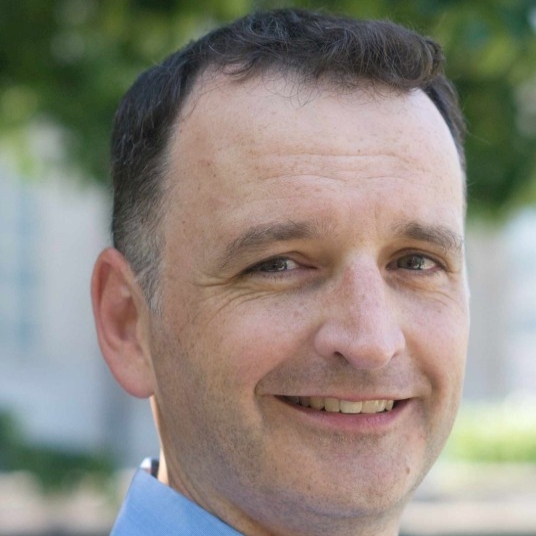 Martin Dusinberre is Professor and Chair for Global History, Department of History, University of Zurich. Dr. Dusinberre’s research focuses on the history of Japan’s engagement with the Pacific world from the mid-19th to the mid-20th-centuries. In the last decade, he has published on the history of transpacific migration, shipping, sugar plantation labor, and Japanese conceptions of the ‘Pacific age.’ He is currently completing his second monograph, a study of the constitution of “the” archive in an age of global history. He has co-edited special issues of The Journal of Global History (2016), Historische Anthropologie (2019) and the Historical Journal (2021). He has served on the Editorial Board of Past and Present since 2020.
Martin Dusinberre is Professor and Chair for Global History, Department of History, University of Zurich. Dr. Dusinberre’s research focuses on the history of Japan’s engagement with the Pacific world from the mid-19th to the mid-20th-centuries. In the last decade, he has published on the history of transpacific migration, shipping, sugar plantation labor, and Japanese conceptions of the ‘Pacific age.’ He is currently completing his second monograph, a study of the constitution of “the” archive in an age of global history. He has co-edited special issues of The Journal of Global History (2016), Historische Anthropologie (2019) and the Historical Journal (2021). He has served on the Editorial Board of Past and Present since 2020.
Treasurer and Editor-in-Chief
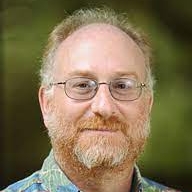 Peter H. Hoffenberg is Professor of History at University of Hawai’i at Manoa. He has has edited the Bulletin of the Pacific Circle and assisted with Circle email communications, subscriptions and directories for almost 20 years. He has published on exhibitions, imperialism and nineteenth-century Australian science. His most recent monograph is ‘A Science of our Own:’ Exhibitions and the Rise of Australian Public Science (2019), published in the University of Pittsburgh Press series on Science and Culture in the Nineteenth Century. He also teaches courses on the History of Science, since 1700, and on the Darwinian Revolution.
Peter H. Hoffenberg is Professor of History at University of Hawai’i at Manoa. He has has edited the Bulletin of the Pacific Circle and assisted with Circle email communications, subscriptions and directories for almost 20 years. He has published on exhibitions, imperialism and nineteenth-century Australian science. His most recent monograph is ‘A Science of our Own:’ Exhibitions and the Rise of Australian Public Science (2019), published in the University of Pittsburgh Press series on Science and Culture in the Nineteenth Century. He also teaches courses on the History of Science, since 1700, and on the Darwinian Revolution.
Secretary
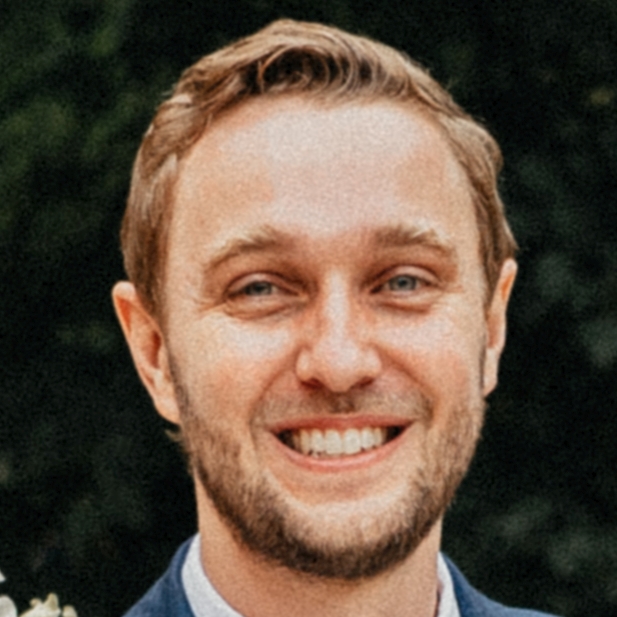 Sebestian Kroupa is Leverhulme Trust Early Career Fellow at the University of Cambridge and Research Fellow at Wolfson College, Cambridge. His research is concerned with the histories of natural and medical knowledge in the early modern Indo-Pacific, with a particular focus on southeast Asia and the Spanish Empire. Sebestian has published on Indigenous tattooing in the Philippines (American Historical Review, 2022), decentring global exchanges of natural from the perspective of Manila (Centaurus, 2016), as well as co-editing a Special Issue of the British Journal for the History of Science on “Science and Islands in Indo-Pacific Worlds” (BJHS, 2018) with Stephanie Mawson and Dorit Brixius. Sebestian is currently working on a monograph which examines how Philippine nature was constructed, commodified, and globalized in the early modern era.
Sebestian Kroupa is Leverhulme Trust Early Career Fellow at the University of Cambridge and Research Fellow at Wolfson College, Cambridge. His research is concerned with the histories of natural and medical knowledge in the early modern Indo-Pacific, with a particular focus on southeast Asia and the Spanish Empire. Sebestian has published on Indigenous tattooing in the Philippines (American Historical Review, 2022), decentring global exchanges of natural from the perspective of Manila (Centaurus, 2016), as well as co-editing a Special Issue of the British Journal for the History of Science on “Science and Islands in Indo-Pacific Worlds” (BJHS, 2018) with Stephanie Mawson and Dorit Brixius. Sebestian is currently working on a monograph which examines how Philippine nature was constructed, commodified, and globalized in the early modern era.
Council Members
 Seema Alavi is a Professor of history at Delhi University, New Delhi, India. She specializes in early modern and modern South Asia, with an interest in the transformation of the region’s legacy from Indo-Persian to one heavily affected by British colonial rule. She has written books on the military, medical and religious histories of India from the early modern to modern times. Her most recent book is the Albert Hourani Award Honorable Mention winner, Muslim Cosmopolitanism in the Age of Empire from Harvard University Press. She is working on her new book titled, Travelling Sultans: Slaves, Wahabis and Europeans in the Western Indian Ocean.
Seema Alavi is a Professor of history at Delhi University, New Delhi, India. She specializes in early modern and modern South Asia, with an interest in the transformation of the region’s legacy from Indo-Persian to one heavily affected by British colonial rule. She has written books on the military, medical and religious histories of India from the early modern to modern times. Her most recent book is the Albert Hourani Award Honorable Mention winner, Muslim Cosmopolitanism in the Age of Empire from Harvard University Press. She is working on her new book titled, Travelling Sultans: Slaves, Wahabis and Europeans in the Western Indian Ocean.
 Warwick Anderson is the Janet Dora Hine Professor of Politics, Governance and Ethics in the Department of History and the Charles Perkins Centre, University of Sydney, where he was previously an Australian Research Council Laureate Fellow (2012-17). He has taught at Harvard, Melbourne, UCSF and Berkeley, and the University of Wisconsin-Madison. His books include The Cultivation of Whiteness: Science, Health and Racial Destiny in Australia (Melbourne 2002; Duke 2006); Colonial Pathologies: American Tropical Medicine, Race, and Hygiene in the Philippines (Duke 2006; Ateneo de Manila 2007); The Collectors of Lost Souls: Turning Kuru Scientists into Whitemen (Johns Hopkins 2008), which was awarded the William H. Welch Medal of the American Association of the History of Medicine (2010), and the Ludwik Fleck Award of the Society for Social Studies of Science (2010); and, with Ian R. Mackay, Intolerant Bodies: A Short History of Autoimmunity (Johns Hopkins, 2014). With Deborah Jenson and Richard Keller he edited Unconscious Dominions: Psychoanalysis, Colonial Trauma, and Global Sovereignties (Duke 2011); with Miranda Johnson and Barbara Brookes, Pacific Futures: Past and Present (Hawaii 2018); and with Ricardo Roque and Ricardo Ventura Santos, Lusotropicalism and its Discontents (Berghahn, 2019). He recently has edited, with Gabriela Soto Laveaga, a forum in History and Theory (2020) on decolonizing histories of science; and, with Susan Lindee, a special issue of Historical Studies in the Natural Sciences (2020) on genetic studies of Indigenous peoples in the Pacific and Australasia. He was President of the Pacific Circle in 2017-20.
Warwick Anderson is the Janet Dora Hine Professor of Politics, Governance and Ethics in the Department of History and the Charles Perkins Centre, University of Sydney, where he was previously an Australian Research Council Laureate Fellow (2012-17). He has taught at Harvard, Melbourne, UCSF and Berkeley, and the University of Wisconsin-Madison. His books include The Cultivation of Whiteness: Science, Health and Racial Destiny in Australia (Melbourne 2002; Duke 2006); Colonial Pathologies: American Tropical Medicine, Race, and Hygiene in the Philippines (Duke 2006; Ateneo de Manila 2007); The Collectors of Lost Souls: Turning Kuru Scientists into Whitemen (Johns Hopkins 2008), which was awarded the William H. Welch Medal of the American Association of the History of Medicine (2010), and the Ludwik Fleck Award of the Society for Social Studies of Science (2010); and, with Ian R. Mackay, Intolerant Bodies: A Short History of Autoimmunity (Johns Hopkins, 2014). With Deborah Jenson and Richard Keller he edited Unconscious Dominions: Psychoanalysis, Colonial Trauma, and Global Sovereignties (Duke 2011); with Miranda Johnson and Barbara Brookes, Pacific Futures: Past and Present (Hawaii 2018); and with Ricardo Roque and Ricardo Ventura Santos, Lusotropicalism and its Discontents (Berghahn, 2019). He recently has edited, with Gabriela Soto Laveaga, a forum in History and Theory (2020) on decolonizing histories of science; and, with Susan Lindee, a special issue of Historical Studies in the Natural Sciences (2020) on genetic studies of Indigenous peoples in the Pacific and Australasia. He was President of the Pacific Circle in 2017-20.
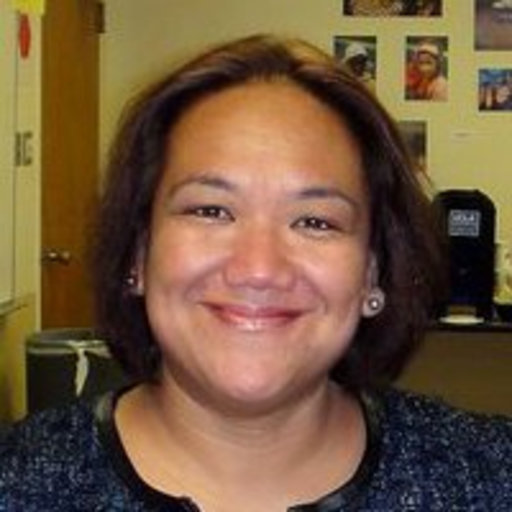 Noelani M. Arista is a Kanaka Maoli (Native Hawaiian) born in Honolulu. She is an Associate Professor in the Department of History and Classical Studies at McGill University and is the director of the Indigenous Studies Program at McGill University. Her research interests include Hawaiian governance and law, Hawaiian intellectual history and knowledge production, colonialism, and missionization, Indigenous language archives and knowledge organization. Arista seeks to utilize AI and machine learning to organize and make available Hawaiian language textual sources. Arista is the author of the award-winning book The Kingdom and the Republic: Sovereign Hawai’i and the Early United States (2018), which details Native Hawaiians’ experience of encounter and colonialism in the nineteenth century through previously unused Hawaiian language documents. Addressing native political formation, the creation of Indigenous law, and encounters with missionaries and traders, The Kingdom and the Republic reconfigures familiar colonial histories of trade, proselytization, and negotiations over law and governance in Hawai’i. Currently, Arista seeks to create pathways into digital territory, considering questions about how to secure traditional Hawaiian systems of knowledge—and further mo’o ʻōlelo (history oral and textual, story, chant) through various digital mediums, including game play. She is the creator of the Facebook group 365 days of aloha which supplies followers with a Hawaiian word, translations of songs or chants, and images to facilitate encounters with deeper Hawaiian currents of knowledge, which was reinvigorated recently in 2020.
Noelani M. Arista is a Kanaka Maoli (Native Hawaiian) born in Honolulu. She is an Associate Professor in the Department of History and Classical Studies at McGill University and is the director of the Indigenous Studies Program at McGill University. Her research interests include Hawaiian governance and law, Hawaiian intellectual history and knowledge production, colonialism, and missionization, Indigenous language archives and knowledge organization. Arista seeks to utilize AI and machine learning to organize and make available Hawaiian language textual sources. Arista is the author of the award-winning book The Kingdom and the Republic: Sovereign Hawai’i and the Early United States (2018), which details Native Hawaiians’ experience of encounter and colonialism in the nineteenth century through previously unused Hawaiian language documents. Addressing native political formation, the creation of Indigenous law, and encounters with missionaries and traders, The Kingdom and the Republic reconfigures familiar colonial histories of trade, proselytization, and negotiations over law and governance in Hawai’i. Currently, Arista seeks to create pathways into digital territory, considering questions about how to secure traditional Hawaiian systems of knowledge—and further mo’o ʻōlelo (history oral and textual, story, chant) through various digital mediums, including game play. She is the creator of the Facebook group 365 days of aloha which supplies followers with a Hawaiian word, translations of songs or chants, and images to facilitate encounters with deeper Hawaiian currents of knowledge, which was reinvigorated recently in 2020.
 David Armitage is the Lloyd C. Blankfein Professor of History at Harvard University and an Affiliated Faculty Member at Harvard Law School. He is also an Honorary Professor of History at the University of Sydney and at Queen’s University Belfast and an Honorary Fellow of St Catharine’s College, Cambridge. Among his eighteen books as author or editor are The Ideological Origins of the British Empire (2000), The Declaration of Independence: A Global History (2007), The British Atlantic World (co-ed., 2nd edn. 2009), Foundations of Modern International Thought (2013), The History Manifesto (co-auth., 2014), Pacific Histories: Ocean, Land, People (co-ed., 2014), Civil Wars: A History in Ideas (2017) and Oceanic Histories (co-ed., 2018).
David Armitage is the Lloyd C. Blankfein Professor of History at Harvard University and an Affiliated Faculty Member at Harvard Law School. He is also an Honorary Professor of History at the University of Sydney and at Queen’s University Belfast and an Honorary Fellow of St Catharine’s College, Cambridge. Among his eighteen books as author or editor are The Ideological Origins of the British Empire (2000), The Declaration of Independence: A Global History (2007), The British Atlantic World (co-ed., 2nd edn. 2009), Foundations of Modern International Thought (2013), The History Manifesto (co-auth., 2014), Pacific Histories: Ocean, Land, People (co-ed., 2014), Civil Wars: A History in Ideas (2017) and Oceanic Histories (co-ed., 2018).
 Chen Hao is Associate Professor of medical history at Peking University. His most recent books are Medicine as Ongoing Meaning: Historical Epistemology and the Narratives of Medical Identities in 6-8th Century China (Shanghai Ancient Books Press, 2019) and When Diseases Become Trauma: Historical Ontology and the Illness Narratives in Chinese History (Shanghai Ancient Books Press, 2020). Currently, he is working on the formation of “modern” historiography on ancient/ “traditional” medicine and other knowledge in Republican China (1912-1949), from a trans-national or global perspective.
Chen Hao is Associate Professor of medical history at Peking University. His most recent books are Medicine as Ongoing Meaning: Historical Epistemology and the Narratives of Medical Identities in 6-8th Century China (Shanghai Ancient Books Press, 2019) and When Diseases Become Trauma: Historical Ontology and the Illness Narratives in Chinese History (Shanghai Ancient Books Press, 2020). Currently, he is working on the formation of “modern” historiography on ancient/ “traditional” medicine and other knowledge in Republican China (1912-1949), from a trans-national or global perspective.
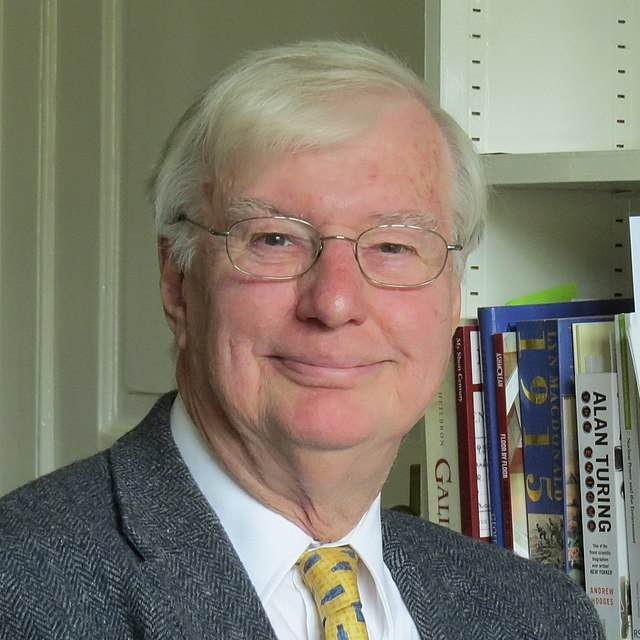 Roy MacLeod is an Emeritus Professor of History and a member of the School of History and Philosophy of Science and of the Centre for International Security Studies at the University of Sydney. Educated at Harvard and Cambridge, he was founder of History and Social Studies of Science at Sussex University, a co-founder of Social Studies of Science (1971-1997), and editor of Minerva, 2000-2009. Moving to Sydney in 1983, he was a co-founder (with Fritz Rehbock, in 1985) of the Pacific Circle, and its Newsletter (now Bulletin), and has since written extensively in the social history of science, technology and exploration in Australasia and the Pacific. His work includes (with P.F. Rehbock, eds.), ‘Nature in its Greatest Extent’: Western Science in the Pacific (University of Hawaii Press, 1988); and Darwin’s Laboratory: Evolutionary Theory and Natural History in the Pacific (University of Hawaii Press, 1994); The Commonwealth of Science: ANZAAS and the Scientific Enterprise in Australasia, 1888-1988 (Melbourne: Oxford University Press, 1988); Disease, Medicine and Empire: Perspectives on Western Medicine and the Experience of European Expansion, edited with Milton Lewis (London: Routledge, 1988; reissued, 2021); and Health and Healing in Tropical Australia and Papua New Guinea, edited with Donald Denoon (James Cook University Press, 1991),
Roy MacLeod is an Emeritus Professor of History and a member of the School of History and Philosophy of Science and of the Centre for International Security Studies at the University of Sydney. Educated at Harvard and Cambridge, he was founder of History and Social Studies of Science at Sussex University, a co-founder of Social Studies of Science (1971-1997), and editor of Minerva, 2000-2009. Moving to Sydney in 1983, he was a co-founder (with Fritz Rehbock, in 1985) of the Pacific Circle, and its Newsletter (now Bulletin), and has since written extensively in the social history of science, technology and exploration in Australasia and the Pacific. His work includes (with P.F. Rehbock, eds.), ‘Nature in its Greatest Extent’: Western Science in the Pacific (University of Hawaii Press, 1988); and Darwin’s Laboratory: Evolutionary Theory and Natural History in the Pacific (University of Hawaii Press, 1994); The Commonwealth of Science: ANZAAS and the Scientific Enterprise in Australasia, 1888-1988 (Melbourne: Oxford University Press, 1988); Disease, Medicine and Empire: Perspectives on Western Medicine and the Experience of European Expansion, edited with Milton Lewis (London: Routledge, 1988; reissued, 2021); and Health and Healing in Tropical Australia and Papua New Guinea, edited with Donald Denoon (James Cook University Press, 1991),
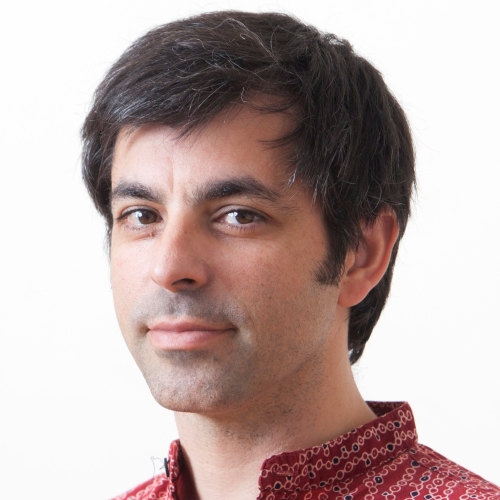 Ricardo Roque is a Research Fellow at the Institute of Social Sciences, University of Lisbon and an Honorary Associate in the Department of History, University of Sydney. Dr. Roque’s research focuses on the history and ethnography of human sciences, colonialism, race, and cross-cultural contact in the Portuguese-speaking world, from 1800 to the twentieth century. Among his publications are Headhunting and Colonialism: Anthropology and the Circulation of Human Skulls in the Portuguese Empire (Palgrave 2010) and the edited volumes Crossing Histories and Ethnographies: Following Colonial Historicities in Timor-Leste (with E. G. Traube, Berghahn 2019) and Luso-tropicalism and Its Discontents: The Making and Unmaking of Racial Exceptionalism (with W. Anderson and R. Ventura Santos, Berghahn 2019).
Ricardo Roque is a Research Fellow at the Institute of Social Sciences, University of Lisbon and an Honorary Associate in the Department of History, University of Sydney. Dr. Roque’s research focuses on the history and ethnography of human sciences, colonialism, race, and cross-cultural contact in the Portuguese-speaking world, from 1800 to the twentieth century. Among his publications are Headhunting and Colonialism: Anthropology and the Circulation of Human Skulls in the Portuguese Empire (Palgrave 2010) and the edited volumes Crossing Histories and Ethnographies: Following Colonial Historicities in Timor-Leste (with E. G. Traube, Berghahn 2019) and Luso-tropicalism and Its Discontents: The Making and Unmaking of Racial Exceptionalism (with W. Anderson and R. Ventura Santos, Berghahn 2019).
 Buhm Soon Park is Professor at the Graduate School of Science and Technology Policy at KAIST (Korea Advanced Institute of Science and Technology), where he teaches history of science, science policy, and the Anthropocene from comparative perspectives. His research has focused on the knowledge production at the intersection of scientific disciplines institutions, laws and policies, and international treaties and trades. His publications include: Bridging the Technology Gap: Historical Perspectives on Modern Asia (co-edited, Seoul National University Press, 2013); Basic Science in Society: Institute for Basic Science and the New Ecology of Knowledge (co-authored, Hanwool, 2016, in Korean). He has served on the Editorial Board of Historical Studies in the Natural Sciences since 2019. He is currently President of the Association for East Asian Environmental History (2021-23).
Buhm Soon Park is Professor at the Graduate School of Science and Technology Policy at KAIST (Korea Advanced Institute of Science and Technology), where he teaches history of science, science policy, and the Anthropocene from comparative perspectives. His research has focused on the knowledge production at the intersection of scientific disciplines institutions, laws and policies, and international treaties and trades. His publications include: Bridging the Technology Gap: Historical Perspectives on Modern Asia (co-edited, Seoul National University Press, 2013); Basic Science in Society: Institute for Basic Science and the New Ecology of Knowledge (co-authored, Hanwool, 2016, in Korean). He has served on the Editorial Board of Historical Studies in the Natural Sciences since 2019. He is currently President of the Association for East Asian Environmental History (2021-23).
 Frances Steel is Senior Lecturer in the History Programme, University of Otago. Her research interests concern cultures of mobility, technology and labour in the colonial Pacific, transpacific shipping and aviation networks, and commodity trades, particularly as they relate to perishable foods. Her publications include Oceania Under Steam: Sea Transport and the Cultures of Colonialism (Manchester University Press, 2011) and the edited collection New Zealand and the Sea: Historical Perspectives (Bridget Williams Books, 2019). She is currently co-editor of the Journal of Pacific History.
Frances Steel is Senior Lecturer in the History Programme, University of Otago. Her research interests concern cultures of mobility, technology and labour in the colonial Pacific, transpacific shipping and aviation networks, and commodity trades, particularly as they relate to perishable foods. Her publications include Oceania Under Steam: Sea Transport and the Cultures of Colonialism (Manchester University Press, 2011) and the edited collection New Zealand and the Sea: Historical Perspectives (Bridget Williams Books, 2019). She is currently co-editor of the Journal of Pacific History.
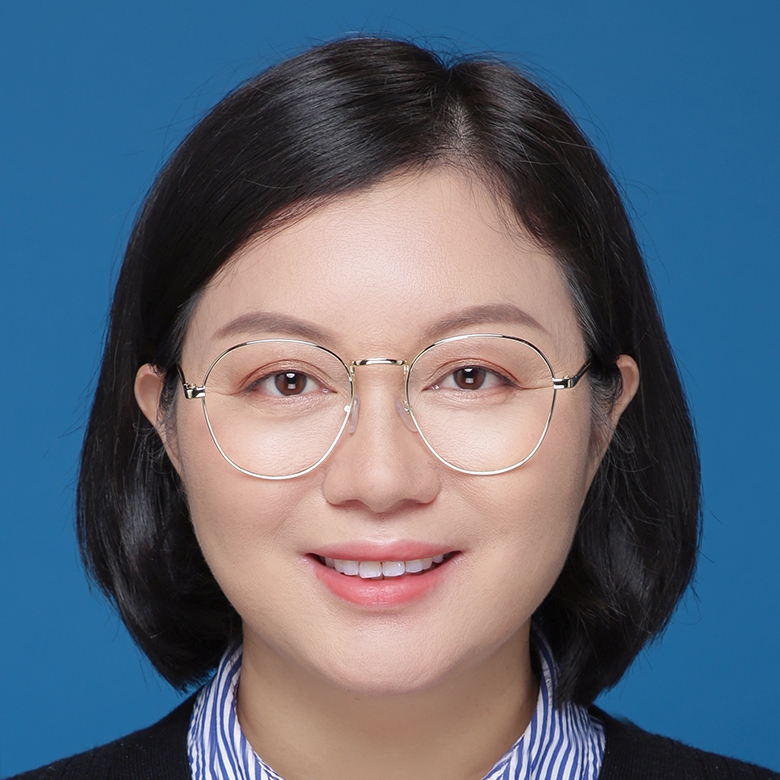 Meifang Zhang, Institute for Cultural Heritage and History of Science & Technology, University of Science and Technology Beijing. Professor Zhang teaches historiography of science, sociology of science, and she researches in gender and science. She has led projects on feminist history of medicine and technology in China, science communication, and traditional craftsmanship. Among Professor Zhang’s publications are The Multi-Perspective Studies on the History of Science and Scientific Culture (Shandong Science and Technology Press, 2018), A Historiographical Study on Feminist History of Science (Science Press, 2015), and co-edited Readings in the Gender and Science (Shanghai Jiao Tong University Press, 2008).
Meifang Zhang, Institute for Cultural Heritage and History of Science & Technology, University of Science and Technology Beijing. Professor Zhang teaches historiography of science, sociology of science, and she researches in gender and science. She has led projects on feminist history of medicine and technology in China, science communication, and traditional craftsmanship. Among Professor Zhang’s publications are The Multi-Perspective Studies on the History of Science and Scientific Culture (Shandong Science and Technology Press, 2018), A Historiographical Study on Feminist History of Science (Science Press, 2015), and co-edited Readings in the Gender and Science (Shanghai Jiao Tong University Press, 2008).
Editors
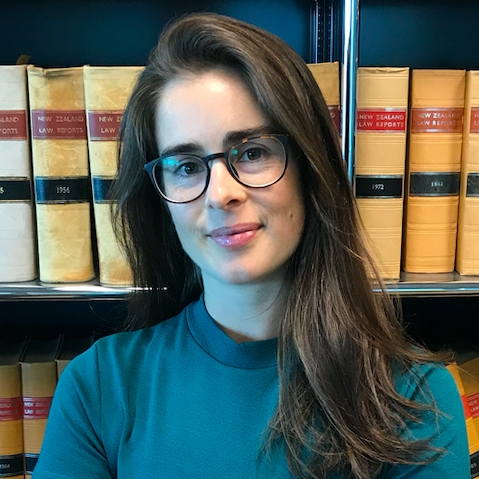 Emma Gattey (Pākehā/New Zealand European) is a PhD candidate at the University of Cambridge, with a background in legal practice and literary criticism. Her doctoral research focuses on collaboration and conflict between Pākehā feminists and Māori women activist-intellectuals in late twentieth-century Aotearoa New Zealand. Her work focuses on the transnational influences behind this intersectional scholarship and activism. Emma regularly reviews for literary journals and is a Research Fellow at the University of Otago, working on Te Takarangi.
Emma Gattey (Pākehā/New Zealand European) is a PhD candidate at the University of Cambridge, with a background in legal practice and literary criticism. Her doctoral research focuses on collaboration and conflict between Pākehā feminists and Māori women activist-intellectuals in late twentieth-century Aotearoa New Zealand. Her work focuses on the transnational influences behind this intersectional scholarship and activism. Emma regularly reviews for literary journals and is a Research Fellow at the University of Otago, working on Te Takarangi.
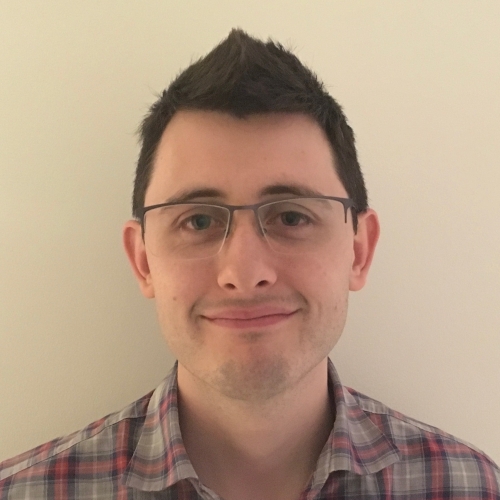 Rohan Howitt is a Lecturer in Environmental History in the School of Philosophical, Historical, and International Studies at Monash University. His research examines the connected histories of Australia, New Zealand, Antarctica, the sub-Antarctic islands, and the Southern Ocean itself, focusing on environmental transformations and the intersection of global, environmental, and imperial histories in this region.
Rohan Howitt is a Lecturer in Environmental History in the School of Philosophical, Historical, and International Studies at Monash University. His research examines the connected histories of Australia, New Zealand, Antarctica, the sub-Antarctic islands, and the Southern Ocean itself, focusing on environmental transformations and the intersection of global, environmental, and imperial histories in this region.
